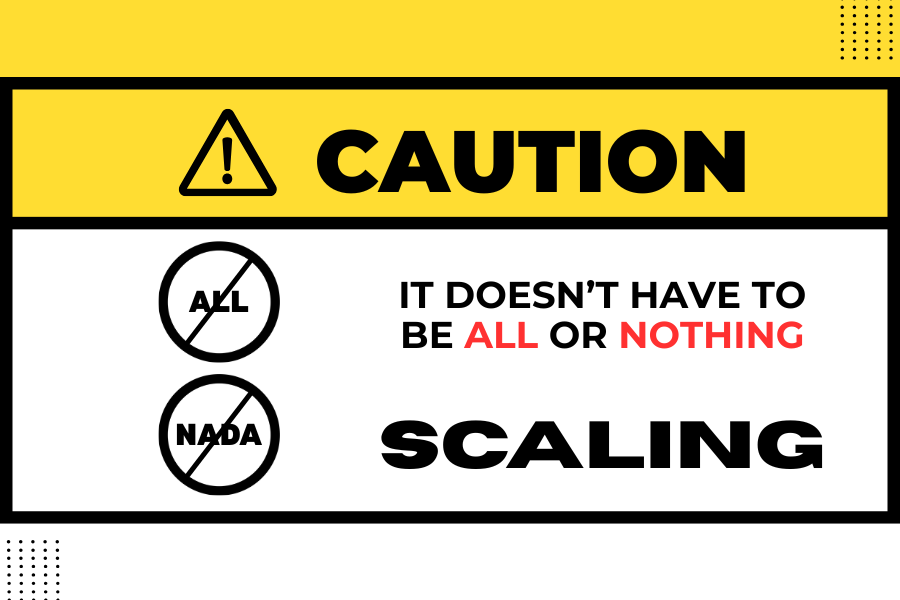
Understanding Your Workplace Retirement Plans: A Quick Guide for Young Professionals
As a young professional starting your career, you're likely encountering terms like 401(k), Roth 401(k), and 403(b) for the first time. While you might already be contributing to these plans (kudos if you are!), understanding what they are and how they work is crucial for taking control of your financial future.
Why This Matters
I've observed something interesting among young professionals, including my own family members: while many are contributing to their retirement plans, few truly understand what they're investing in or why. Having family guidance is helpful, but it's essential to understand these investments yourself – after all, it's your money and your future.
Consider this: the decisions you make about retirement investing in your twenties can literally mean the difference between a comfortable retirement and financial stress later in life. When you understand your investment options, you can:
- Make informed choices about contribution amounts rather than just accepting default rates
- Select investments that align with your long-term goals instead of blindly following suggestions
- Recognize the true value of employer matching (it's literally free money you might be leaving on the table)
- Adjust your investment strategy as your life circumstances change
- Feel confident about your financial decisions rather than anxious about the unknown
- Take advantage of tax benefits that can save you thousands of dollars over your career
- Avoid costly mistakes that come from making uninformed investment changes during market volatility
Plus, the financial literacy you gain from understanding your retirement accounts will serve you well in other areas of your financial life, from budgeting to investing to major purchase decisions.
The Basics: Company-Sponsored Retirement Plans
Company-sponsored retirement plans are your ticket to building long-term wealth through your employer. These plans allow you to contribute a portion of your paycheck toward retirement, often with your employer adding extra money through a matching program. Think of it as a partnership between you and your employer to secure your financial future.
Types of Plans You Might Encounter:
- 401(k): The most common type, where contributions are made before taxes, reducing your current taxable income. Withdrawals in retirement are taxed as income
- Roth 401(k): Contributions are made after taxes, but qualified withdrawals in retirement are tax-free
- 403(b) and 457(b): Similar to a 401(k) but specifically for employees of non-profits, state and local governments, public schools, colleges, universities, hospitals and other tax-exempt organizations

When Should You Start?
The answer is simple: immediately. As soon as you're eligible, start contributing. Yes, I know what you're thinking – "But I'm already stretched thin financially!" Here's the thing: if you start from day one, you'll never miss that money because you'll adjust your lifestyle to what's left after contributions. Aim for 15-20% of your income if possible, especially early in your career before major expenses like childcare come into play.
Here’s a link to an article depicting why it's so important to invest early and often. This financial services company provides a compelling example of how investing just $100 a month for 10 years can result in a larger portfolio than investing $100 a month for 40 years but starting 10 years later. You can see their analysis here:
Investment Selection: Beyond Target Date Funds
While target date funds are popular, they might not be the best choice for young professionals. Here's why:
- They often come with higher fees than simple index funds
- When you have decades until retirement, you may not need the bond exposure these funds typically include
Instead, consider investing in index ETFs or mutual funds. These investment vehicles offer:
- Broad Market Exposure: An S&P 500 index fund gives you exposure to 500 of America's largest companies
- Low Costs: Index funds typically have lower expenses than actively managed funds
- Simplicity: One fund can provide extensive diversification
- Flexibility: You can add international or emerging market exposure if desired
Action Steps for Getting Started
- Enroll in your company's plan through the benefits portal
- Set your contribution percentages (e.g., 10% to traditional 401(k), 5% to Roth 401(k))
- Verify you're within annual contribution limits (see current limits here)
- Select your investments, focusing on low-cost index funds that match your risk tolerance
The Bottom Line
Taking control of your retirement investing doesn't have to be overwhelming. Start early, contribute consistently, and choose simple, low-cost investment options. Remember, every dollar you invest in your twenties has decades to grow through compound interest. While your older self will thank you for starting early, your present self will benefit from developing strong financial habits and literacy.
Don't let perfect be the enemy of good – it's better to start investing with a simple strategy than to wait until you feel you understand everything. You can always adjust your strategy as you learn more and your circumstances change.
Remember: Social Security alone likely won't provide the retirement lifestyle you envision. By taking advantage of your employer's retirement plan today, you're taking a crucial step toward securing your financial independence tomorrow.
Have questions about your specific situation? Consider consulting with your company's benefits coordinator or a financial advisor who can provide personalized guidance based on your circumstances.
This blog post is intended for educational and informational purposes only. The views expressed are solely those of the author and do not represent professional financial advice. While every effort has been made to ensure the accuracy of the information presented, it should not be relied upon as a substitute for individualized advice from a qualified financial advisor. Financial decisions are complex and personal, and readers are strongly encouraged to conduct their own due diligence and seek professional guidance before making any investment or financial planning choices.
- Chris Maggio, Founder, Retirement Planning Partner, Kirkland, WA—providing fee-only retirement planning to clients in Seattle and across the US.




